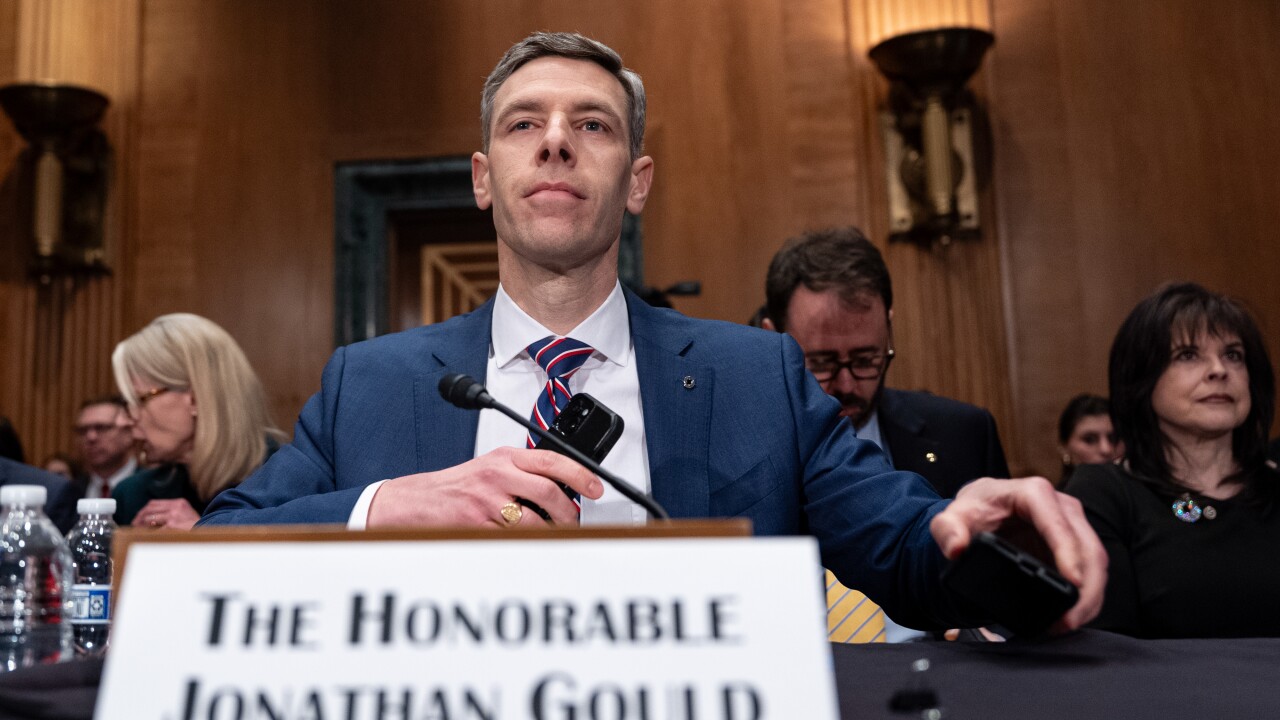What's That Again?
There was plenty of chatter last week, particularly among unhappy Republicans, about an awkward 15-minute exchange between Rep. Spencer Bachus and House Financial Services Committee Chairman Barney Frank over what was said in a private conversation.
During the markup on a bill to give shareholders a nonbinding vote on executive compensation, the Alabama Republican sharply criticized Frank for not holding a hearing on the issue after the bill was introduced (the panel had held a hearing before the introduction of legislative language). He noted that he and other lawmakers had sent a letter to Frank urging him to delay the vote until a hearing had been held.
But Frank said that, at a meeting shortly after the letter was sent, Bachus had disavowed the need for a hearing, saying the issue was politically toxic for Republicans.
"I am somewhat puzzled by a pattern, I have to say, of receiving letters from him publicly and then privately being told, 'Wait a minute. I take that letter back,' " Frank said. "The gentleman said, 'I don't want to have a hearing. That was someone else's idea. I don't want to have a discussion of this.' That was what he said to me."
Bachus insisted that, though the issue was a bad one for Republicans, he never said he did not want a hearing. "What I said to you, it was very difficult for my members to stand up and fight this legislation," Bachus said.
Which raised the question — at least among observers — about why Republicans were opposing the bill if doing so was so dangerous. To the private consternation of many GOP members, it was a point Bachus repeatedly drove home. "It's not to our advantage to be up here as the Republican Party opposing executive compensation limits."
As for whether he really wanted the hearing, Bachus was at times unclear. "I said it was not in our interest politically to have a hearing. That's what I said," he said.
But it was Rep. Mel Watt who delivered the harshest rebuke to Bachus. The North Carolina Democrat accused Bachus of opposing the bill because of political or process reasons but not being clear whether he opposed it substantively. "The government should not be in the position of setting executive compensation," Bachus said after a back-and-forth with Watt.
But that only made things worse in Watt's eyes.
"There is nothing in this bill that allows the government to set compensation," Watt said. "I've read the bill. Apparently the gentleman has not read the legislation to know whether he supports it substantively or doesn't support it."
'Help' for Geithner
There are countless examples of everyday Americans struggling to sell their homes during this economic crisis.
So it was fitting that "The Daily Show with Jon Stewart" spent some of last week trying to help a would-be home seller: Treasury Secretary Timothy Geithner.
"How can the American people trust a man who can't sell his house?" asked correspondent John Oliver. "Is it not like hiring a personal trainer who is morbidly obese?"
Geithner bought his house in 2004 for $1.6 million. In order to relocate his family to Washington, he is trying to sell it for $1.635 million.
"Whoever owns this house clearly knows nothing about finance," Oliver said to a real estate agent, explaining that the house won't sell because it is priced too high.
Oliver even tried to help by attempting to sell the secretary's house at auction. Despite asking $1.6 million repeatedly and even raising the price to $1.8 billion, he found no buyers.
Eventually he settled on a reason the home won't sell: a "ghastly" blue-tile bathroom.
Geithner "may never sell his house, but it's just as well because, if this guy is just as bad at handling the economy as this guy is at picking tiles, … [he] will be back in Larchmont [New York] very, very soon," Oliver said.
Fed Picks George
The Federal Reserve Board has chosen Esther George to temporarily fill in as the director of the supervision and regulation division. George, who has just been promoted to first vice president of the Federal Reserve Bank of Kansas City, is to succeed Roger Cole, who announced his retirement earlier this year and whose last day was Saturday. Until this week, George was the senior vice president for supervision and risk management at the Kansas City Fed, which she joined in 1982. She previously oversaw discount window lending in the district and was chairman of the community banking organizations management group. The Fed is still searching for a permanent successor to Cole.





